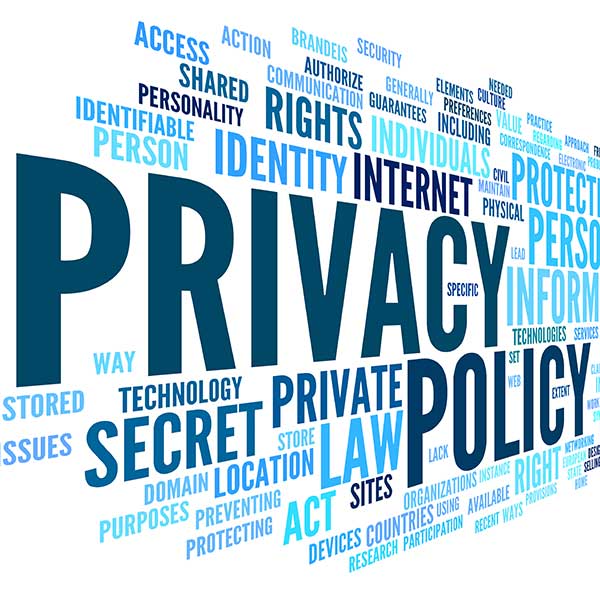Table of Contents
ToggleIn the technology age, 24/7 access to the World Wide Web is quickly becoming the norm. It may be difficult to imagine a world without the Internet, but many people believe this world is familiar to some and a scary place to others. After all, learning to operate a computer and use the Internet is basically learning a new language — computers don’t speak our language.
Privacy is one of those concepts that is hard to understand when it comes to the Internet. It allows people to maintain some control over their personal information, but at the same time, be able to make use of the Internet.
However, privacy on the Internet is not like a right to privacy in the physical world. In the physical world, your privacy is protected under law. But in the virtual world, there is no law that provides the same level of protection; that is changing, with implications for business owners.
Therefore, if you want to use the Internet to benefit your business, you need to learn about its privacy issues. The benefits of online as a business far outweigh the inconveniences. The line is blurring between online and offline; online is quickly becoming everywhere and everything to a business. At the same time, that causes problems for individual rights to privacy.
This is where an Online Privacy Policy comes into play.
In this brief guide, we cover the online privacy laws, how to protect yourself, why it’s a bad idea to download “free” privacy policy templates.
And we’ll show you how to get a completely DONE FOR YOU service for less than $10/month that puts you in FULL COMPLIANCE!
A Privacy Policy is a document that discloses what personal information a business or organization collects, stores, and uses.
It establishes how the organization will deal with collected information, including how the information is kept safe and secured, how it will be used, and who may see it.
The main purpose of a privacy policy is to protect the privacy of customers, employees, and the organization itself.
The Privacy Policy lets people know how an organization will use their personal information.
A Privacy Policy is legally enforceable because it describes the rights of the website visitor and the organization.
The Privacy Policy should explicitly state that users have the right to request their personal information, and have the right to have it corrected if it is wrong.
A Privacy Policy should include how an organization will use personal information, the legal ground or bases for collecting, storing, and using it, and how long the organization will keep it.
Your website needs a Privacy Policy if : You are collecting personal information about users. eg: Name, address, email address, phone number etc. The Privacy Policy describes how this information is collected and used, and how long it will be kept.
Most websites collect personal information through forms such as contact forms. The Privacy Policy should explain how this information will be used.
 Currently, there are multiple privacy laws in the United States designed to protect users’ privacy. However, these laws can be difficult to understand and they vary from country to country (and from state to state).
Currently, there are multiple privacy laws in the United States designed to protect users’ privacy. However, these laws can be difficult to understand and they vary from country to country (and from state to state).
Here are the more prominent privacy laws today:
Privacy laws protect the citizen who is navigating your website; you are subject to enforcement of laws in their jurisdiction.
A California privacy law is enforceable against an out-of-state business if the customer visiting the website is a resident of California. Same with a citizen of the European Union (EU), Australia, Canada and other states like Colorado and Virginia which have their own online privacy laws.
Fines for online privacy laws start at $2,500 per violation (per website visitor)… as much as $20,000! This has led to many websites including social media platforms and search engine companies changing their privacy policies.
Why you need to keep your privacy policy updated
Although you may be thinking that you will never be penalized for violating online privacy laws, this is never the case. Technology changes just as fast as the laws do, and new types of technologies are being developed all the time. It may not be long before you are penalized for violating online privacy laws.
 Several states have proposed privacy bills that, if passed, will have a negative impact on how your company interacts with website visitors and collects data of your visitors. For example, one Florida bill would have required companies such as Facebook to respond to any government requests for information about users in 40 days. Many lawmakers are committed to protecting the privacy of Internet users, and these bills are a keen example of this.
Several states have proposed privacy bills that, if passed, will have a negative impact on how your company interacts with website visitors and collects data of your visitors. For example, one Florida bill would have required companies such as Facebook to respond to any government requests for information about users in 40 days. Many lawmakers are committed to protecting the privacy of Internet users, and these bills are a keen example of this.
These bills all have different requirements for the disclosures that companies must make to their visitors and customers.
In fact, some states are proposing to penalize companies that fail to disclose how they will collect data about their customers and how it will be used. This bill would require companies to inform visitors about what information will be collected and how it will be used. Companies would then have 45 days to respond legally to requests from government agencies.
If your website gets inquiries from across state lines, you may be required to comply with multiple state privacy laws plus the federal and international privacy laws.
For example, Australia recently ruled that sites using Google Analytics tracking code were in violation of the EU General Data Protection Regulation (GDPR).
Business owners are often tempted to purchase a template for a one time fee. While it’s attractive not to pay monthly for something, the templates are out of date and can’t possibly be updated to keep up with the ever-changing laws.
Another common misstep is to copy another website’s policy pages but this may lead to a copyright infringement action brought against you.
In addition, these solutions leave out protections that a customized, automatically updating policy page will offer you. With the auto-update version, you will answer a series of simple questions about your business. Within less than 10 minutes, your policy page is ready to upload to your website.
Because online privacy laws are constantly evolving, the best solution is to implement a system that automatically updates your Privacy Policy pages (Terms of Use, Disclaimer, etc.) as the laws change. This is a hands-off system that is installed onto your website and updates without further intervention by you. Because this is a simple piece of code, it’s lightweight and does not slow down your website. In addition, it can be styled to match your current website aesthetic. It really is the perfect solution and it is very affordable at less than $10/month. (Click here for more information.)
Because there is code involved, you may want to hire someone to help you install it into your site. Some companies charge up to $2,000 to add policy and compliance pages to a website but this is really extreme. Stay clear of those charlatans. A reputable company can handle the job for $100; that would be a full service installation including matching the website’s design / styling.
If you are the classic “DIY” person and you are confident in your ability to insert code into your website, we recommend Termageddon, the longest running Privacy Policy generator listed as a trusted privacy technology vendor by the International Association of Privacy Professionals (IAPP.org).
If you’re anxious about online privacy and how to resolve this, there is really only one way:
Get your business in compliance with the law.
As we have seen, copying someone else’s policy pages is illegal. Downloading templates offers practically zero protection because those solutions are out of date and not specific to your business. They are incomplete, at best.
Considering the BEST solution is so affordable, why even mess around with skirting the law or putting your business at risk with a mediocre solution?
How about complete peace of mind for less than $10/month!
 TruBlu is a Certified Agency Partner with one of the largest providers of online privacy policies.
TruBlu is a Certified Agency Partner with one of the largest providers of online privacy policies.
If you are comfortable doing all the coding and website integration yourself, then click the link and get started today.
On the other hand, if you would like a 100% Done For You solution, then keep reading.
We offer a Full Service Package that includes:
Become compliant today — and remain compliant with the constantly changing online privacy laws.
Take out all the guesswork, frustration and hassle — and focus on what’s important… running your business!
For less than $10/month, your website will have the pages necessary to comply with online privacy laws. Scroll down and let’s get started today!
Disclaimer: we are not attorneys nor are we offering legal advice.